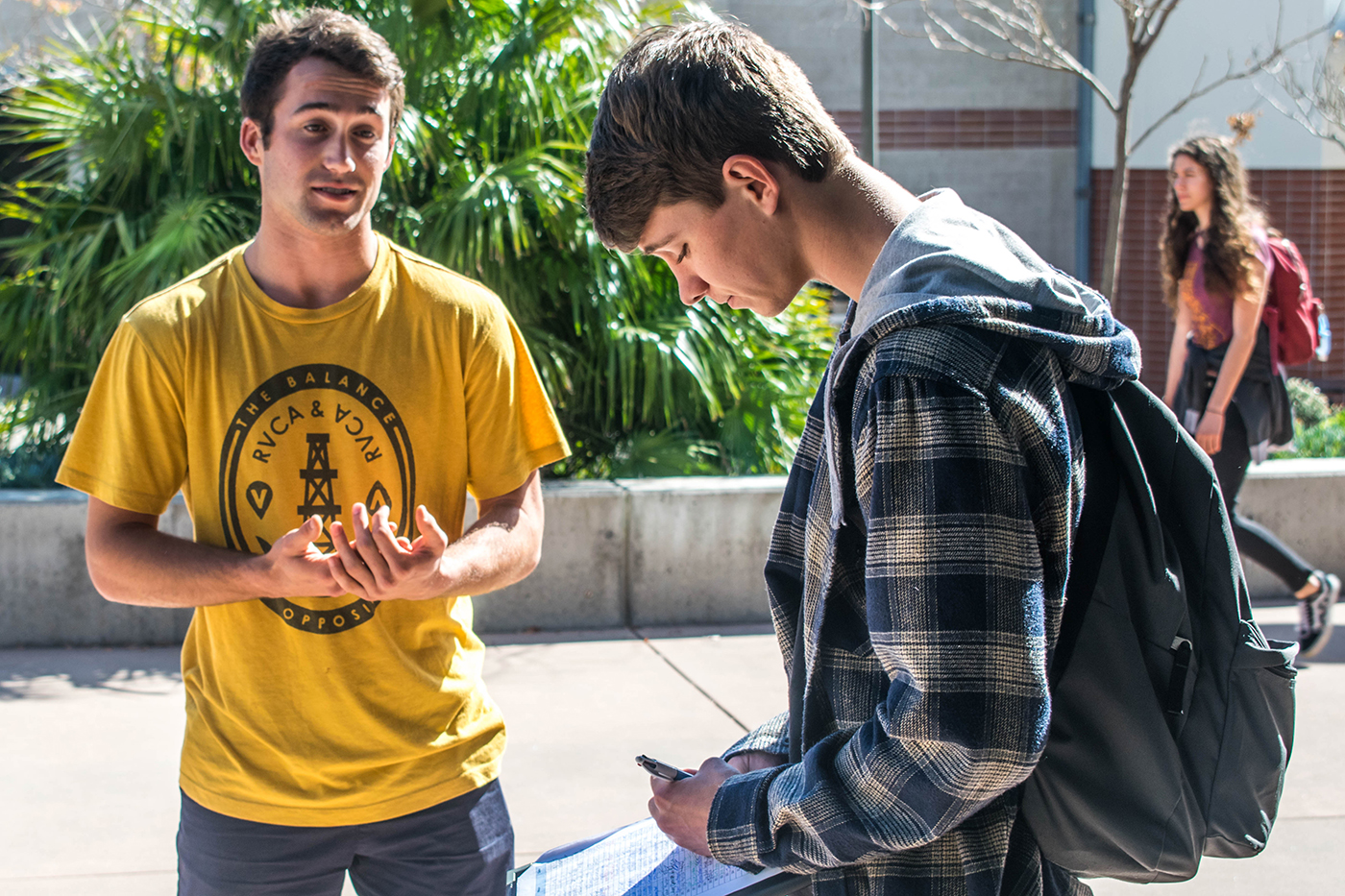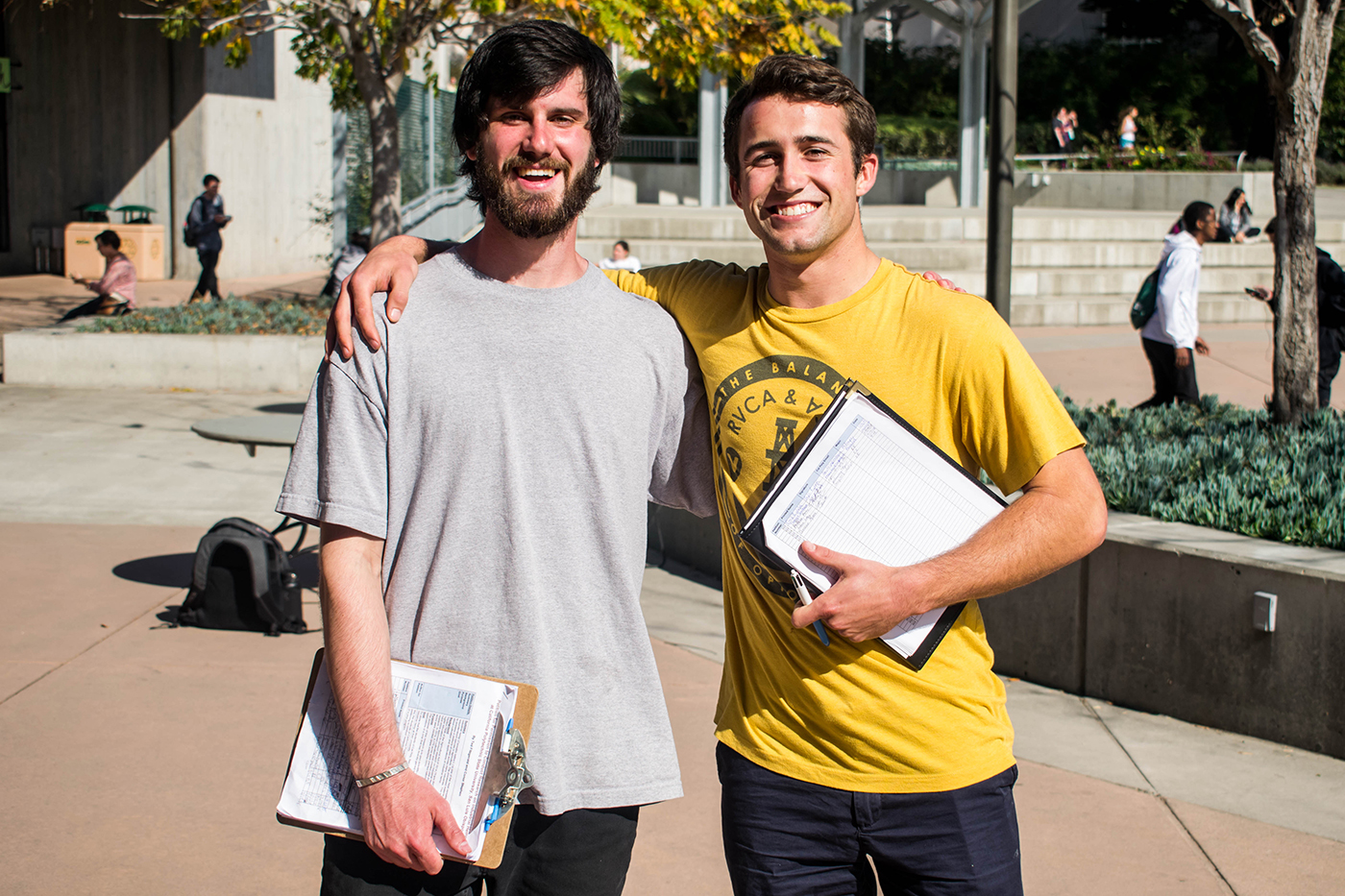Poly Hemp — the first Cal Poly club advocating for the education and research of industrial hemp — held its first meeting Wednesday, April 17. This comes one year after two students petitioned to start a pilot program at Cal Poly to conduct research on industrial hemp.
Agricultural business senior Ted Fitzgerald was one of the two students who petitioned for an industrial hemp pilot program. One year and nearly 4,000 signatures later, Fitzgerald is now the first president of Poly Hemp.
“[Industrial hemp] is a rapidly emerging industry, but there isn’t a student organization that is funneling students that are interested into the industry,” Fitzgerald said.
Industrial hemp is the non-psychoactive form of Cannabis sativa L. This means the hemp cannot be used to get high, which is commonly associated with cannabis. Although hemp looks similar to marijuana, the two are not the same.
The tetrahydrocannabinol (THC) concentration distinguishes hemp from marijuana. Industrial hemp cannot have a THC concentration of 0.3 percent on a dry weight basis. On the other hand, marijuana can have THC levels between 3 to 30 percent, according to the National Institute of Food and Agriculture.
The Controlled Substance Act of 1970 outlawed hemp alongside other forms of cannabis, including marijuana, labeling it a Schedule 1 drug. Fitzgerald said this led hemp to be stigmatized, like marijuana, despite not having any psychoactive effects.
Agricultural and environmental plant sciences sophomore and Poly Hemp Co-Secretary Olivia Eck said it is an issue that people group hemp under the same category of marijuana.
“A lot of people don’t know how useful [hemp] can be,” Eck said. “It can [be used in] construction materials, fabric and so many other things.”

Hemp was legalized and removed from the controlled substance list with the passage of the 2018 Farm Bill that President Trump signed into law December 20, 2018. The bill also opened up opportunities for research to be conducted on hemp, and it allows for the production of hemp as an agricultural commodity.
“We think California is going to be the center of all of the production,” Fitzgerald said. “We’re excited to be a student organization that is really advocating for such a cool industry.”
Horticulture and crop science lecturer and Poly Hemp adviser Mike Bush said he hopes that in the future industrial hemp research will be a reality on campus, but he does not know the logistics of how this research would be conducted.
“I think it would be inevitable for such to happen in the next five to 10 years,” Bush said.
According to Fitzgerald, hemp can be a replacement material for everyday items. For example, plastic can be made out of hemp. This offers a more sustainable and eco-friendly version of plastic, as hemp- plastic decomposes 200 times faster than the more common oil-based plastic, according to the national hemp association.
Wine and viticulture sophomore Claire Eberhart said she came to the Poly Hemp meeting because she is interested in learning about the sustainable uses of hemp.
“As college students, we are definitely the future,” Eberhart said. “I think it’s super important for students to be educated and knowledgeable about alternatives to non-sustainable options. I think it’s important for every student to expand their knowledge on sustainability.”
Eberhart added that she is looking forward to meeting other students who are interested in hemp as well as conducting research.
For now, students cannot grow or conduct hemp research on campus. The club’s current focus is on networking and learning more about the hemp industry.
“My role is to guide them, to provide [students] a place, provide them an ability to use their enthusiasm and expertise to further the knowledge about industrial hemp,” Bush said.”Whether or not that can turn into research here on campus I’m not sure about.”
The Cal Poly National Organization for the Reform of Marijuana Laws (NORML) is another club with goals similar to Poly Hemp, but Fitzgerald said NORML is focused on cannabis advocacy, whereas Poly Hemp is focused on educating students about the uses of hemp and the industry as a whole. Bush said Poly Hemp is distinct and will not focus on cannabis or psychoactive marijuana advocacy.

